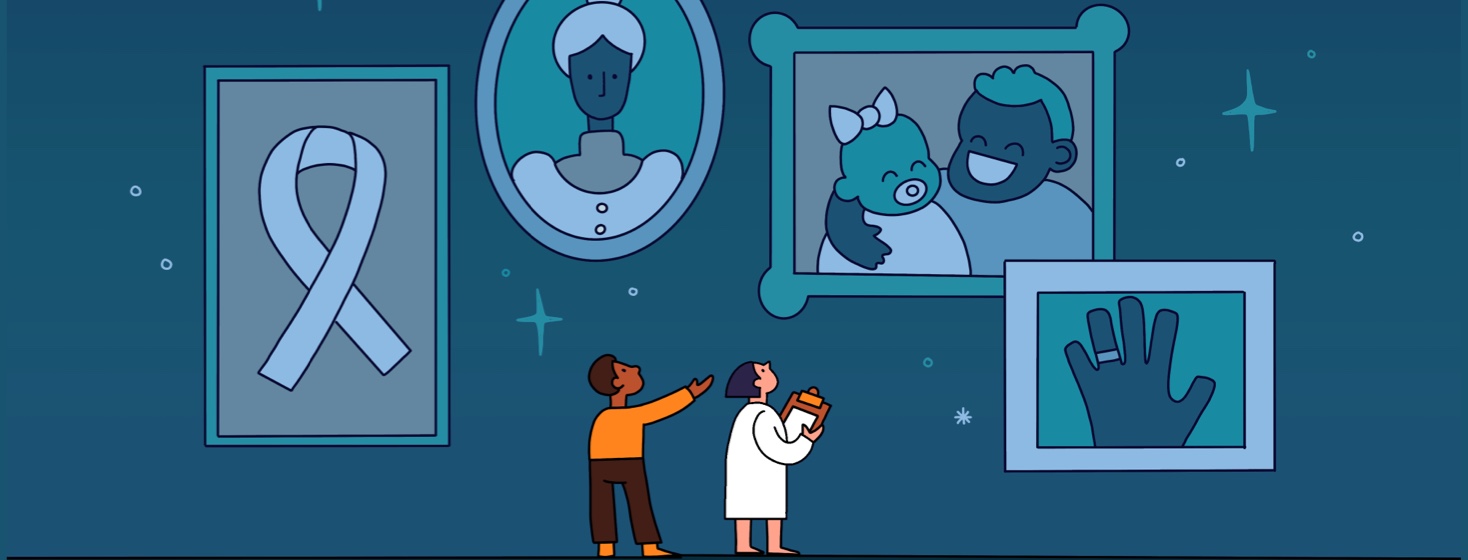Personalized Medicine Requires Getting Personal
As Patch Adams said, “You treat a disease you win, you lose. You treat a person, I guarantee you, you’ll win no matter the outcome”.
I can tell you firsthand from several experiences how true that is! When I was 13, I lost my dad and two grandparents to lung cancer, and then my mom and my aunt Dede died of lung cancer when I was in my 20’s. At the time, LUNGevity Foundation was just getting off the ground in my community and I got involved. I did what I could to get educated and advocate for the disease, and for family.
Then I was diagnosed with lung cancer
While doing so, in 2009, I was diagnosed with lung cancer at 39 years old. My kids were 6, 8, 10, and 12 — and their only association with the disease was death. They were scared, and my greatest fear was becoming a reality. I was intimately familiar with the disease, I had gained knowledge as an advocate, I had relationships with doctors, nurses, and other stakeholders across the country, yet the emotional stress was crippling. If I was feeling this way, I can't imagine how vulnerable and anxious someone who knows nothing about cancer would feel upon hearing the words, “You have cancer”.
Support can make a world of difference
Hearing the words, ‘you have cancer’ is one of those things you can’t understand unless you’ve experienced it. It’s like you are going about your everyday life and suddenly you are drop-kicked into a foreign country; you don’t speak the language, the culture is unfamiliar, you don’t know what’s expected of you, you aren’t familiar with the terrain and you don’t have a map — yet you need to figure out how to survive.
Now, think about how different your experience would be if there was someone there waiting to help you; listen to your concerns, understand your needs and explain it all to you in a way that you can understand.
Words matter
Words are powerful and important. The most underrated skill of a physician is the ability to communicate with patients and families. The words used, the tone, the body language – all shape how patients and our families experience a terrifying time in our life that we will never forget.
And how they are said is so important because if the intent of a word or how it is said is misunderstood, it can lead to unintended consequences.
But beyond words, the simple yet complex art of conversation is at the heart of a patient’s experience. We/patients are asked to make a rational decision based on complex information at an emotional time when distress and anxiety cloud our ability to comprehend clearly.
Communication is a two-way street
We also have to remember that communication is a two-way street and in the era of precision medicine many times our oncologists are asked to make a recommendation with incomplete information. Effective communication is critical for coping with the complex reality of a lung cancer diagnosis and the decisions that have to be made at different points in our journey.
Personalized medicine requires getting personal. The most important part of our conversations with our oncologists are not the clear data-driven ones. Treating the whole person means on an intellectual, physical, and emotional level. We need to know that the doctor caring for us also cares about us.
Questions to ask yourself when making treatment decisions
Here are some things to think about when discussing treatment with your health care team.
- What is important to you besides living longer?
- What tradeoffs are you willing to make?
- How do you define Quality of Life?
- Will you need help with going to and from treatment, with children, around the house, etc.?
Knowing your preferences ahead of time will ensure that you and your health care team are on the same page when discussing goals of treatment. Here is a comprehensive list of questions to ask and discuss with your team.
We all share a common goal...survival
Every person is different, but there is one thing we all share -- a common goal of survival. How that goal is reached will be different for each patient, but achieving that goal absolutely requires good communication: an open, honest and respectful relationship between physicians and patients.

Join the conversation